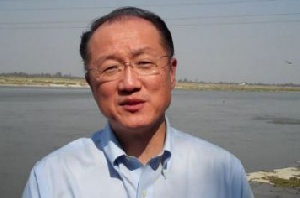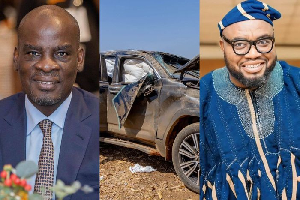The World Bank has cautioned Ghana to make judicious use of its natural resources if it intends to continue to grow economically. According to the Bank, natural resource wealth could be used as a platform for economic and social development.
A World Bank Senior Operations Officer, Dr. Dante Mossi made the call at a 'World Bank Group’s Joint Country Partnership Strategy (CPS) for Ghana' in Accra for selected editors of media houses to update them on the contents of the CPS ahead of its review process which starts in early April 2013.
He said there was inequality in the poverty dimension; the poorer Ghanaians having less access to public services and people living in sparsely populated areas in the north.
Dr. Mossi also mentioned that maternal and infant health was lagging and doubted whether Ghana could achieve the Millennium Development Goal on maternal and infant health. He however revealed that electoral spending cycles in Ghana generated adjustments in the economy resulting in a 12 per cent of Gross Domestic Product (GDP) deficit.
According to him, recent inflation had remained stable at around 10 per cent but interest rates had increased to 23 per cent. Sustained GDP growth above regional average had also improved some social indicators and, according to him, the favourable global prices of cocoa, gold and oil had also helped.
Poverty reduction in Ghana had also been significant with projected poverty rate coming down to around 23 per cent. He said investment in the gas sector had potential positive impact on electricity.
He advised that public policy should be more predictable to compensate for volatility of global prices and therefore suggested that legislation on oil should involve the active participation of civil society organisations (CSO) to come out with a good model.
Dr. Mossi revealed that the Bank’s strategy was to align with Ghana’s political cycle of four years, improve designs and innovations to avoid delays, involvement of civil society with project implementation and more strategic use of grants in the portfolio as well as focus on fewer sectors.
The bank is also working to consolidate the middle income status of Ghana, protect the economy from volatile global commodity prices, improve value for money of public investments, support a financially sustainable energy sector and strengthen public institutions to manage the macro economy and financial sector. He urged government to ensure sustained economic growth and diversification of the agricultural sector to help reduce poverty while initiating a sound macroeconomic management framework and managing natural resources in an accountable manner to enhance growth.
On managing risks, Dr. Mossi called for stronger institutions to help Ghana buffer against global shocks on commodity prices, evolve better macroeconomic management and a sound financial sector to help cushion the impact of external shocks as well as better governance for the budget of the government, including more transparent state owned enterprises.
Business News of Sunday, 31 March 2013
Source: GNA













